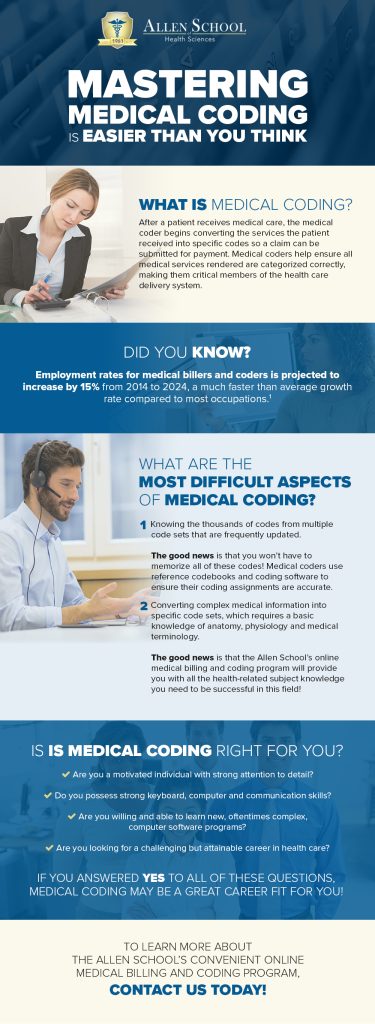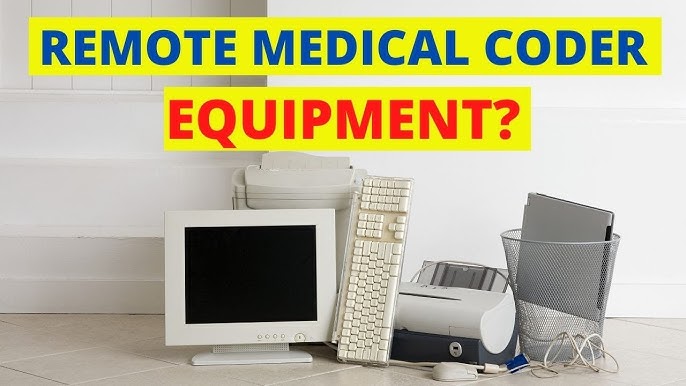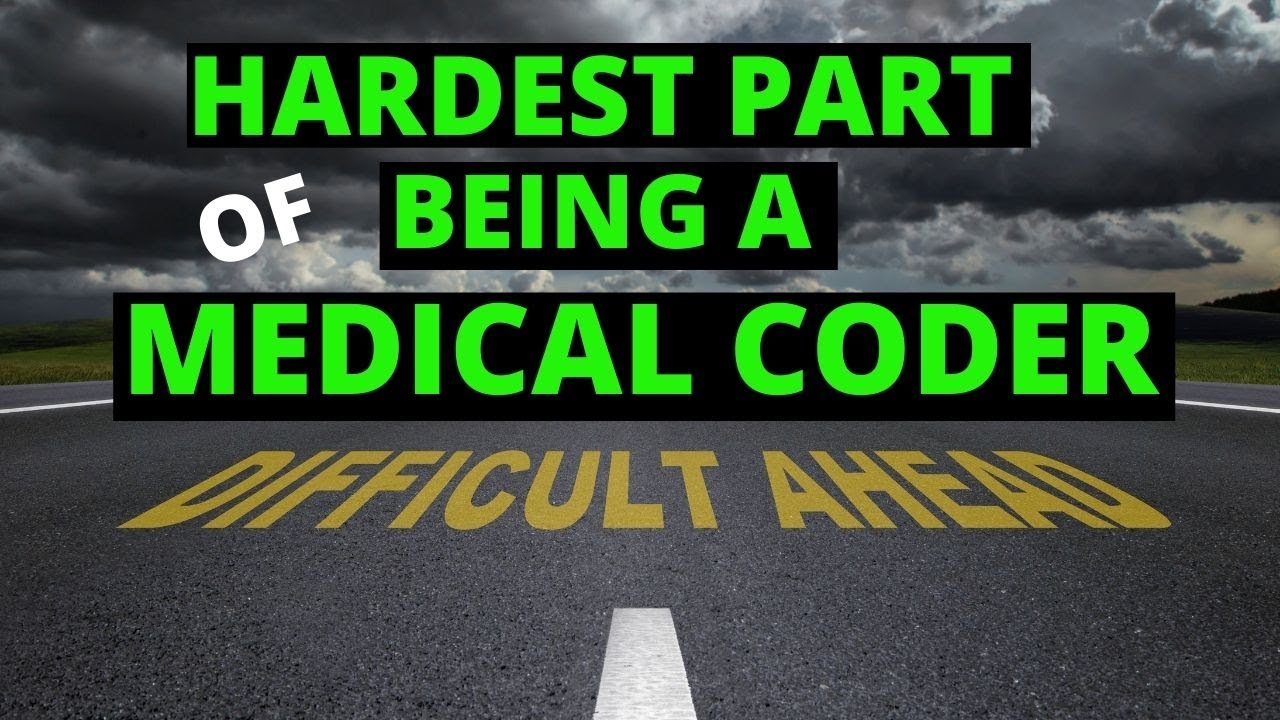As a medical coder, you face many challenges in your profession. However, one aspect that stands out as particularly difficult is the ever-changing nature of medical codes. With new diagnoses, treatments, and procedures being developed constantly, it can be overwhelming to stay up-to-date with the latest coding guidelines and regulations. As a result, the hardest part of being a medical coder is ensuring accuracy and compliance while navigating through the complex coding landscape.
In our upcoming article, we will explore this topic in more detail and provide valuable insights on how to overcome the challenges of being a medical coder. We will discuss the importance of ongoing education and professional development, as well as strategies for effectively managing your coding workload. Whether you’re a seasoned medical coder or just starting out in the field, this article will provide you with the knowledge and tools you need to excel in your profession. Stay tuned to learn more about the hardest part of being a medical coder and how to conquer it successfully. Being a medical coder is not an easy task. It requires constant learning, managing a high volume of information, navigating complex healthcare systems, dealing with strict deadlines, handling legal and compliance issues, working under pressure, continuously adapting to technology, maintaining accuracy and precision, and effective communication and collaboration. In this article, we will explore each of these challenges and understand why they make the job of a medical coder so difficult.

Demands of Constant Learning
As a medical coder, you are expected to stay updated with the ever-changing medical codes. Medical coding is a complex process that involves assigning specific codes to diagnosis, procedures, and treatments. These codes are essential for insurance claims, billing, and maintaining accurate medical records. However, with advancements in medical treatments and technology, new codes are added regularly, and existing codes are updated. This requires medical coders to constantly update their knowledge and skills to ensure accurate coding.
Staying Updated with Medical Codes
Staying updated with medical codes is a daunting task. There are multiple code sets, such as International Classification of Diseases (ICD), Current Procedural Terminology (CPT), and Healthcare Common Procedure Coding System (HCPCS). Each code set has its own guidelines and updates. Medical coders need to continuously research and study these code sets to understand the changes and ensure compliance.
Understanding Complex Medical Terminology
Medical coding involves working with complex medical terminology. Medical coders need to have a thorough understanding of medical terms, abbreviations, and acronyms to accurately assign codes. This requires continuous learning and staying updated with the latest medical terminology. The complexity of medical terminology can pose a challenge, especially for new coders, as it takes time and effort to become familiar with the vast array of medical terms.
Managing High Volume of Information
Medical coders deal with an extensive amount of information on a daily basis. They review medical records, analyze data, and abstract relevant information for coding. This requires careful attention to detail and the ability to handle large volumes of information efficiently.
Reviewing Extensive Medical Records
Medical coders are responsible for reviewing and interpreting medical records to extract the necessary information for coding. This can be a time-consuming and complex process, as medical records can be lengthy and contain various types of information, such as laboratory results, diagnostic tests, and treatment plans. Medical coders need to ensure they accurately review and interpret all relevant information to assign the appropriate codes.
Analyzing and Abstracting Data
After reviewing medical records, medical coders need to analyze and abstract the relevant data for coding. This involves identifying key diagnoses, procedures, and treatments and translating them into specific codes. The ability to efficiently analyze and abstract data is crucial for accurate and timely coding.
Navigating Complex Healthcare Systems
Medical coders work within complex healthcare systems that involve multiple stakeholders, such as healthcare providers, insurance companies, and government agencies. Navigating these systems and understanding the various processes and policies can be challenging.
Interacting with Multiple Insurance Companies
Medical coders need to interact with multiple insurance companies to ensure proper reimbursement for the healthcare services provided. Each insurance company may have its own set of rules, regulations, and reimbursement policies. Medical coders need to understand and comply with these policies to ensure accurate and timely claim submission.
Understanding Different Reimbursement Policies
In addition to insurance companies, medical coders also need to understand different reimbursement policies, such as Medicare and Medicaid. These government programs have specific coding and billing requirements that medical coders must adhere to. Understanding and keeping up with these policies can be difficult, as they are subject to frequent updates and changes.
Dealing with Strict Deadlines
Medical coding involves working with strict deadlines, especially when it comes to claim submission. Insurance companies have specific timelines for submitting claims, and missing these deadlines can result in delayed or denied payments. Medical coders need to be diligent and detail-oriented to ensure accurate and timely coding within these tight deadlines.
Meeting Claim Submission Deadlines
Meeting claim submission deadlines is essential for proper reimbursement and cash flow in healthcare facilities. Medical coders need to prioritize their work and manage their time effectively to meet these deadlines. This can be challenging, especially when dealing with a high volume of coding work.
Ensuring Accurate and Timely Coding
In addition to meeting claim submission deadlines, medical coders also need to ensure accurate and timely coding. Errors in coding can lead to claim rejections, delayed payments, or even legal issues. Medical coders need to double-check their work, verify the accuracy of codes, and stay updated with coding guidelines to minimize coding errors.

Handling Legal and Compliance Issues
Medical coders are responsible for adhering to various legal and compliance regulations. Failure to comply with these regulations can result in serious consequences, such as fines, legal disputes, and damage to the reputation of healthcare facilities.
Adhering to Privacy Regulations
Medical coders deal with sensitive patient information on a daily basis. They need to ensure patient privacy and comply with privacy regulations, such as the Health Insurance Portability and Accountability Act (HIPAA). This requires handling patient information with utmost confidentiality and following specific guidelines for data protection.
Avoiding Fraudulent Billing Practices
Medical coders need to be aware of potential fraudulent billing practices and ensure they do not engage in any illegal activities. Billing fraud can result in severe penalties and legal actions. Medical coders need to stay informed about compliance regulations, billing guidelines, and ethical coding practices to avoid any legal and ethical issues.
Working Under Pressure
Working as a medical coder can be highly stressful, especially in fast-paced healthcare environments where there is a constant demand for accurate and timely coding. Medical coders need to be able to handle pressure and manage their stress effectively.
Multi-tasking in a Fast-Paced Environment
Medical coders often have to multi-task and work on multiple coding assignments simultaneously. They need to balance their workload, prioritize tasks, and meet tight deadlines. This requires excellent organizational skills and the ability to work efficiently under pressure.
Managing Stress during Critical Situations
Medical coders may encounter critical situations, such as emergency cases or high-profile patients, which require immediate attention and accurate coding. These situations can be highly stressful and require medical coders to stay calm, focused, and accurate in their coding. Effective stress management techniques are essential for maintaining productivity and accuracy in such situations.

Continuous Adaptation to Technology
Technology plays a crucial role in medical coding. Medical coders need to continuously adapt to new technologies, such as electronic health record (EHR) systems and coding software tools, to stay efficient and up to date with the latest practices.
Learning and Utilizing Electronic Health Record Systems
Electronic Health Record (EHR) systems have become the standard for maintaining patient records in healthcare facilities. Medical coders need to learn and navigate these systems to access and extract relevant information for coding. They also need to ensure that the information in the EHR is accurately reflected in the coding process.
Navigating Coding Software Tools
In addition to EHR systems, medical coders also need to navigate coding software tools, such as encoding software and coding databases, to assign codes accurately. These tools assist in the coding process by providing code suggestions, documentation references, and coding guidelines. However, mastering these tools and adapting to new versions and updates can be time-consuming and challenging.
Maintaining Accuracy and Precision
Accuracy and precision are vital in medical coding. Coding errors can have serious consequences, such as incorrect billing, denial of claims, or compromised patient care. Medical coders need to maintain a high level of accuracy and precision in their work.
Identifying and Correcting Coding Errors
Medical coders need to have a keen eye for detail to identify and correct coding errors. They need to cross-reference the medical records, coding guidelines, and documentation to ensure accuracy. Continuous learning and staying updated with coding guidelines and industry best practices help medical coders improve their accuracy and precision.
Ensuring Proper Documentation
Proper documentation is crucial for accurate and appropriate coding. Medical coders need to ensure that the medical records contain all the necessary information to support the assigned codes. They may need clarifications from physicians or healthcare staff to ensure proper documentation. Effective communication and collaboration are essential for obtaining the required information and maintaining accurate documentation.

Effective Communication and Collaboration
Medical coders work closely with physicians, healthcare staff, and other coding professionals. Effective communication and collaboration are essential for accurate coding and seamless workflow.
Coordinating with Physicians and Healthcare Staff
Medical coders often need to coordinate with physicians and healthcare staff to clarify coding-related queries or obtain additional information for accurate coding. This requires effective communication skills to convey queries and receive timely responses. Building a collaborative relationship with physicians and healthcare staff enhances the accuracy and efficiency of coding.
Clarifying Coding Related Queries
Medical coders may encounter coding-related queries or discrepancies that need to be clarified with other coding professionals. They need to effectively communicate and seek guidance to resolve any coding issues or ambiguities. This collaboration ensures accurate and consistent coding practices across the healthcare facility.
Conclusion
Being a medical coder is a demanding job that requires constant learning, managing a high volume of information, navigating complex healthcare systems, handling strict deadlines, dealing with legal and compliance issues, working under pressure, adapting to technology, maintaining accuracy and precision, and effective communication and collaboration. While challenging, the role of a medical coder is crucial in ensuring accurate coding, proper reimbursement, and quality patient care. By continuously staying updated with coding guidelines, leveraging technology, and maintaining open communication, medical coders can overcome these challenges and excel in their profession.

